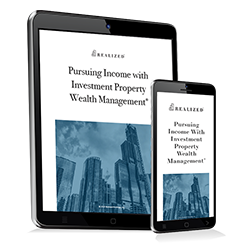
A comprehensive retirement plan requires some extensive pre-planning to ensure you’ve built enough financial assets to live comfortably as you age.
There are a wide range of factors to consider before retirement, and no two retirement plans are likely going to be the same since retirees have different financial situations and retirement goals. However, there are some big questions you should list and check off as you begin thinking about retirement.
5 Questions to Ask - And Answer - Before Retiring
Leaving the financial stability and routine of a longtime job for new adventures in retirement will likely be a bit scary for people who thrive on order and repetition. Others will relish the chance to shed the yoke of work life for uncharted waters. Only you can decide what your retirement looks like. It may include long walks around the neighborhood with the dog, golfing multiple days a week, traveling, or simply basking in the sun with your feet up.
Before jumping onto the retirement train, however, ask yourself these five questions:
- What Age Do I Want to Retire? Historically, the standard age for retirement was 65, but if you were born after 1960 it’s changed to 67 years old. If you retire before that age you won’t get your full Social Security benefits, and if you wait until you are age 70, you’ll get a larger benefit amount. If Social Security is one of the main ways you’ll draw income after you stop earning a regular paycheck, you may want to stave off retirement until you can maximize your Social Security payments.
- How Will I Pay for Health Insurance? Health insurance and your mortgage will likely be your two largest expenditures in retirement. Medicare kicks in at age 65 and covers 80 percent of most medically necessary procedures and treatments, it still can leave holes in your coverage since it doesn’t pay for everything and you’ll still have premium and co-payments. You can open a health savings plan or create a dedicated investment account whose funds are solely used to cover insurance premiums and other out-of-pocket healthcare expenses.
- How Long Do I Need My Money to Last? This question is a tough one because no one can really determine how long they will live once they retire. The current average life expectancy for Americans is 76.6 years.1 If you wait until 70 to retire, your money has a better chance of lasting until you pass. If you live until you are 95, however, well that creates a completely different scenario. Consider the 25x rule for retirement savings – save 25 times the money you expect to spend annually in your retirement years. If you expect to spend $30,000 annually after you retire, you need $750,000 to last 25 years. Of course, this formula doesn’t take into account unexpected life events, such as major medical expenses or managed care in the final stages of your life.
- If I Need More Money for Retirement, How Can I Catch Up? You can maximize savings with catch-up contributions to individual retirement accounts, employer-sponsored retirement plans, 401(k)s and other tax-advantaged retirement vehicles. There are contribution limits, but if you can budget the extra savings then do so, especially if you have an employer matching contribution plan. You have to be at least 50 years old to begin making catch-up contributions.2 Other ways to boost retirement savings include saving all lump-sum payments such as bonuses and tax refunds, trimming unnecessary expenses, and rebalancing your investment portfolio with targeted retirement goals.
- What Do I Really Need? This is another big one that requires a lot of soul-searching. Many retirees are content to travel the country in large Class A motorhomes. However, the average cost of a Class A motorhome is $250,000, and luxury models can run upwards of $500,000. A nicely appointed fifth-wheel RV and a one-ton truck to pull it will likely set you back more than $200,000. Do you really need these big-ticket items? Knowing your passions before you retire can help you avoid making unnecessary purchases or frivolous expenditures.
The Bottom Line
Financial stability is but one aspect of retirement planning. Of course it’s important to ensure you have enough money to comfortably live out your life, but there are many other aspects of retirement that are equally important – health, happiness, stability and family, for instance.
Write your financial plans for retirement in ink, and stick to them. Write the other aspects of your retirement plan in pencil – you never know what doors may open to you once you close the door on work for the last time.



